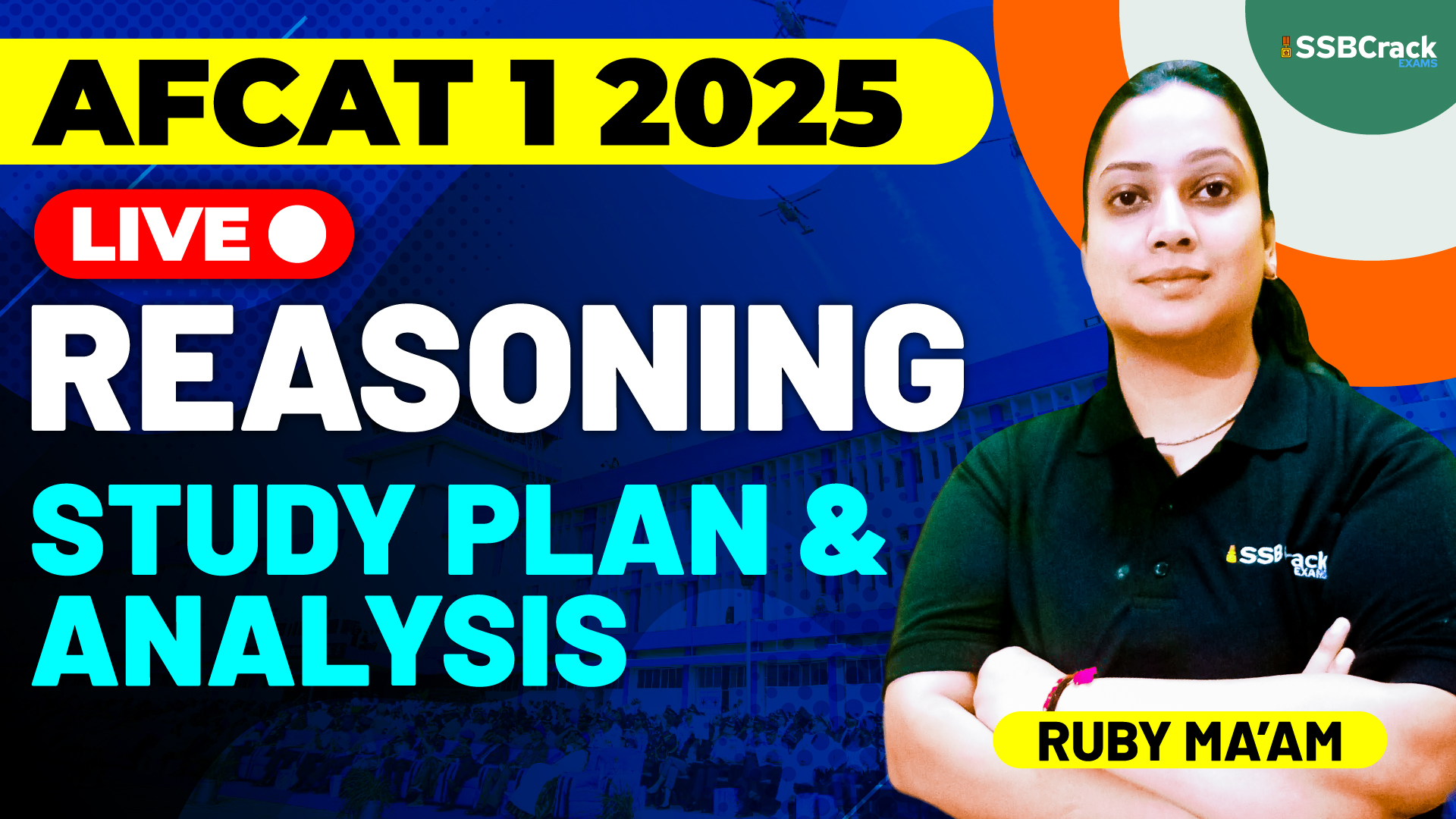Air Force Common Admission Test (AFCAT) is one of the most prestigious competitive exams for those aspiring to join the Indian Air Force as Commissioned Officers. Among the various sections in the exam, the reasoning segment plays a critical role in assessing a candidate’s logical ability, analytical thinking, and problem-solving skills. Understanding the syllabus for reasoning can greatly enhance the chances of success. Let’s dive deep into the reasoning syllabus, break it down, and analyze it for optimal preparation.
Overview of the Reasoning Section in AFCAT
The reasoning section in AFCAT typically consists of 32 questions, carrying a total of 96 marks. It covers both verbal and non-verbal reasoning, and the difficulty level ranges from moderate to high. The section evaluates a candidate’s ability to interpret, analyze, and derive logical conclusions from given information.
Key Topics Covered in the Reasoning Section
- Verbal Reasoning
- Analogy: Questions in this topic test your ability to find relationships between two pairs of words. For instance, “Lion is to Forest as Fish is to ___.” The options may include river, jungle, etc. You need to identify the relationship and choose the right analogy.
- Coding-Decoding: These questions involve converting a word, number, or sentence into a specific code. Understanding the pattern of coding will help in decoding or finding the correct code for a given input.
- Blood Relations: These problems test your understanding of family relationships based on provided information. Practice with family trees and understanding direct and indirect relations can simplify these questions.
- Series Completion: Questions in this category involve identifying the next item in a sequence based on a particular rule. It can include numerical, alphabetical, or mixed sequences.
- Venn Diagrams: You need to solve problems based on relationships between different groups or sets of objects, usually represented through diagrams. These test logical grouping and intersection understanding.
- Syllogism: This topic tests your deductive reasoning, where you draw logical conclusions from given premises or statements. Diagrams like Venn diagrams often help in solving these efficiently.
- Logical Sequence of Words: This tests your ability to arrange a set of words in a meaningful and logical sequence.
- Statement and Assumption/Conclusion: These questions focus on analyzing statements and deciding what assumptions or conclusions can logically be drawn from them.
- Non-Verbal Reasoning
- Figure Classification: You will be required to identify the odd figure in a given set of figures. This involves analyzing shapes and patterns.
- Pattern Completion: These problems test your ability to identify the missing part of a given figure or pattern.
- Mirror and Water Image: In these questions, you need to visualize the mirror or water reflection of a given image or figure.
- Paper Folding and Cutting: These problems require you to visualize how a piece of paper will look after being folded and cut in a particular way.
- Embedded Figures: Here, the task is to find a smaller figure hidden within a larger, complex figure.
- Cubes and Dices: Questions in this area require you to visualize the unfolding of cubes or dice and predict the position of their faces after certain rotations or manipulations.
Importance of Reasoning Section in AFCAT
The reasoning section not only contributes a significant number of marks in AFCAT but also tests the mental agility and critical thinking required in the armed forces. Quick decision-making, logical deductions, and interpreting information correctly are vital qualities for a military officer, and this section helps assess these attributes in candidates.
How to Approach Reasoning Questions
- Practice is Key: Regular practice helps you identify patterns faster, which is crucial for solving reasoning problems. Create a daily routine to solve questions from each topic.
- Time Management: Reasoning questions can be tricky, and spending too much time on one question can cost you valuable time for the rest of the paper. Learn to allocate time wisely, and avoid getting stuck.
- Visualization: Especially for non-verbal reasoning, being able to mentally visualize shapes, rotations, and sequences is a significant advantage. This will come with consistent practice of cube, dice, and paper-folding questions.
- Focus on Shortcuts and Tricks: While logical deduction is important, knowing quick methods for solving certain types of problems, especially in coding-decoding and series, can save you a lot of time.
- Regular Mock Tests: Taking mock tests will help you not only practice but also get accustomed to the time pressure. It’s also a great way to evaluate your preparation and identify weak areas.
- Focus on Accuracy: As AFCAT has a negative marking system, accuracy is essential. Ensure that you thoroughly understand the problem before jumping to conclusions.
Recommended Study Materials
- Books:
- A Modern Approach to Verbal and Non-Verbal Reasoning by R.S. Aggarwal
- How to Crack Test of Reasoning by Jaikishan and Premkishan
- AFCAT-specific reasoning guides available in the market.
- Online Resources: There are numerous websites, mobile applications, and YouTube channels offering reasoning quizzes, mock tests, and tutorials specifically for AFCAT aspirants.
- Previous Year Papers: Solving previous years’ question papers will give you a clear understanding of the type of reasoning questions asked in the exam and help you practice with real-time questions.
Conclusion
The reasoning section in AFCAT is designed to test your logical and analytical capabilities, both of which are critical for a successful career in the Indian Air Force. By understanding the syllabus, focusing on key areas, and regular practice, you can master this section and improve your overall score. Keep a strategic approach, use your time wisely, and continually revise to strengthen your reasoning abilities.
Good luck, and aim high for the sky!







